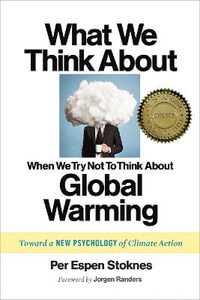A radical and timely proposal for reinvigorating transformative scientific discovery.
So rich was the scientific harvest of the early 20th century that it transformed entire industries and economies. Max Planck laid the foundation for quantum physics, Barbara McClintock for modern genetics, Linus Pauling for chemistry--the list goes on.
In the 1970s, the nature of scientific work started to change. Increases in public funding for scientific research brought demands that spending be justified, a system of peer review that selected only the research proposals promising the greatest returns, and a push for endless short-term miracles instead of in-depth, boundary-pushing research. A vicious spiral of decline began.
In Scientific Freedom, Donald W. Braben presents a framework to find and support cutting-edge, much-needed scientific innovation. Braben--who led British Petroleum's Venture Research initiative, which aimed to identify and aid researchers challenging current scientific thinking--explains:
- The conditions that catalyzed scientific research in the early 20th century
- The costs to society of our current research model
- The changing role of the university as a research institution
- How BP's Venture Research initiative succeeded by minimizing bureaucracy and peer review, and the program's impact
- The selection, budget, and organizational criteria for implementing a Venture Research program today.
Even in the earliest stages, transformative and groundbreaking research can look unrecognizable to those who are accustomed to the patterns established by the past. Support for this research can, in fact, be low risk and offer rich rewards, but it requires rethinking the processes used to discover and sponsor scientists with groundbreaking ideas--and then giving those innovators the freedom to explore.
First published in 2008, this new edition of Scientific Freedom includes over 30 redesigned charts and figures and a new foreword by Donald Braben.
Industry Reviews
"A superb
book, both inspiring and provocative. Braben strives to ensure the most
creative scientists, if completely free to pursue unorthodox research,
will aim to attain the 'elixir of civilization.'"
-Dudley Herschbach, Nobel Laureate in Chemistry 1986
"Scientific Freedom
deals with an issue of great relevance to the world we live in: How
should we ensure that scientific research is enabled to make the
breakthroughs that have characterized the last 100 years of science?
Most certainly it is not by following the current rules of applying for
grants and being demanded to tell the grantors what you will discover.
If we knew that already, it would not be a discovery. All scientists,
granting agencies, and policy-makers should read this refreshing book
and respond to the need to change current funding paradigms."
-Sir Richard J. Roberts, Nobel Laureate in Physiology or Medicine 1993
"What
is the recipe for scientific progress? Don Braben makes persuasive
arguments that true innovation relies on freedom to innovate through the
support of outstanding individuals. . . . He critiques existing science
funding mechanisms as stultifying and proposes an exciting and
compelling agenda to fund science."
-Sir Steve Sparks, Vetlesen Prize 2015
"If any sufficiently advanced technology is indistinguishable from
magic, how do we get there from here? By understanding the fundamental
rules that govern the universe and everything in it. We must ask the
biggest open-ended questions in science, and recognize that we are still
far from knowing the answers. In this seminal book, Don Braben shows
that only scientific freedom can open up the way. It is needed now more
than ever. This book should be read by everyone who cares about our own
future."-Nick Lane, Michael Faraday Prize 2016
"Scientific Freedom
is an important book: beautifully written, brimming with scholarship,
and lightly spiced with Liverpudlian wit. . . . [It] is a book of
revelations and revolutions. Scientific freedom is needed now as never
before."-Nigel R. Franks, University of Bristol
"Don
Braben's suggested solution is a proven way to nurture a scientific
elite without any of the baggage which modern-day usage of the word
'elite' brings."-John Dainton, University of Liverpool
"Don Braben is an iconoclast. May this book inspire those who read it to lend their support to his vision."-Sir John Pendry, Kavli Prize in Nanoscience 2014
"I hope that this exciting book makes a significant impact on [the] future progress of academic research."-William C. Troy, University of Pittsburgh
"Don Braben has been a tireless advocate for a system that redirects
the administration of funded scientific research in the UK (and
elsewhere). He offers cogent arguments why the current system, with its
emphasis on some relevance to the state's economy, risks missing
valuable assets arising from transformative 'breakthroughs' in many
research fields."
-Robin Tucker, University of Lancaster
























